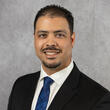About the Program
Mission
Provide a comprehensive, educational experience that facilitates the trainee’s development into independent child and adolescent psychiatrists imbued with the highest quality standards, ability to abide by the ethical principles of the American Academy of Child and Adolescent Psychiatry (AACAP), and become community leaders who will advance the care and advocacy for youth in our local community.
Numerous national studies and presidential commissions have substantiated the magnitude of emotional, behavioral, and developmental disorders in the nation's children and adolescents.
Program Aim
Given the critical shortages, AACAP aims to increase the child and adolescent psychiatry workforce. Clark County, Nevada falls into the category of Severe Shortage of Child and Adolescent Psychiatrists (CAPs). Our CAP fellowship was created expressly to combat our local severe shortage. Our community-based training program focuses on training fellows to become skilled in working within community systems of care, both locally and with the skills to apply their knowledge nationally.
Program Highlights
- Advanced training in the full spectrum of child and adolescent psychiatry.
- Specialized training in the diagnosis and management of youth with psychiatric illness in a wide variety of clinical settings.
- Development of research skills to include training in academic skills such as abstract and manuscript preparation and development of research ideas and research protocols.
- A diverse faculty with expertise in all areas of child and adolescent psychiatry.
- Protected time for didactic conferences encompassing child and adolescent psychopathology, pharmacology, psychotherapy, research skills, and an in-depth understanding of allied resources for youth and families with psychiatric illness.
- Excellent work and home-life balance and supportive colleagues and faculty.
Program Director

Lisa Durette, MD
Associate Professor, Child and Adolescent Psychiatry Fellowship Program Director, and Chair
Curriculum
The child and adolescent psychiatry fellowship didactic series formally occurs in a classroom setting during protected time one day per week. In addition, our program is created to instill in the trainee a desire for lifelong, self-directed learning, in accordance with the expectations set forth by the American Board of Psychiatry and Neurology. Fellows have online access to the Health Science Library of UNLV as well as online access to textbooks and the DSM-5.
Our formal didactics are taught by a combination of child and adolescent psychiatrists, psychologists, Master’s-prepared therapists, and guests from the community, such as the leader of our school district’s psychological services, a family court judge, and an education advocacy attorney. Psychopathology, psychopharmacology and treatment interventions are taught and discussed in interactive case discussions, which also include readings and discussion of seminal studies within the field of child and adolescent psychiatry. Fellows present cases during our case-consultation series, and cofacilitate journal club with the assistance of our research faculty.
In addition to our didactic series, fellows are expected to accomplish a scholarly project prior to graduation. Fellows have the opportunity to collaborate with faculty to complete their projects. In the past, fellows have copresented symposia at the annual AACAP meeting in conjunction with faculty, have published book reviews with faculty, and have presented scientific posters at local meetings. Fellows also complete Quality Improvement (QI) projects prior to graduation and receive a three-part lecture series on the history and purpose of QI initiatives within the field of medicine.
Training Sites
Fellows have protected time for both traditional “classroom” didactics and scholarly projects. In addition, fellows fulfill the role of “residents as teachers” and have opportunities to teach both medical students and general psychiatry residents. During the training program, they receive supervision from attendings at the clinical rotation sites, as well as in the community.
Our fellows take active roles in medical school committees and are encouraged to engage in medical staff committees within their rotation sites. Fellows and faculty from our program have presented research posters at both local meetings and the annual AACAP meeting. In addition, faculty and fellows have presented symposia at the annual AACAP meeting.
How To Apply
Applications to our program are conducted electronically through the Electronic Residency Application Service (ERAS) of the Association of American Medical Colleges, 2450 N. Street, N.D., Washington, DC 20037, Fax: 202-828-1125.
We also offer first-year fellowship positions outside of the National Resident Matching Program (NRMP) Fellowship Match to internal applicants.
The application process requires the following:
- ERAS application
- Curriculum vitae
- Medical school transcript
- Medical School Performance Evaluation (MSPE)
- Personal statement
- Photograph
- COMLEX/USMLE transcript
- Three letters of recommendation, one of which needs to be from the applicant’s current program director
All documents must be received and reviewed before an interview is scheduled.
The University of Nevada, Las Vegas (UNLV) is committed to and will provide equality of educational and employment opportunity for all persons regardless of race, sex, age, color, national origin, ethnicity, creed, religion, disability, sexual orientation, gender, marital status, pregnancy, veteran status, or political affiliation — except where sex, age, or ability represent bona fide educational or employment qualifications or where marital or veteran status are statutorily defined eligibility criteria for federal or state benefit programs.






